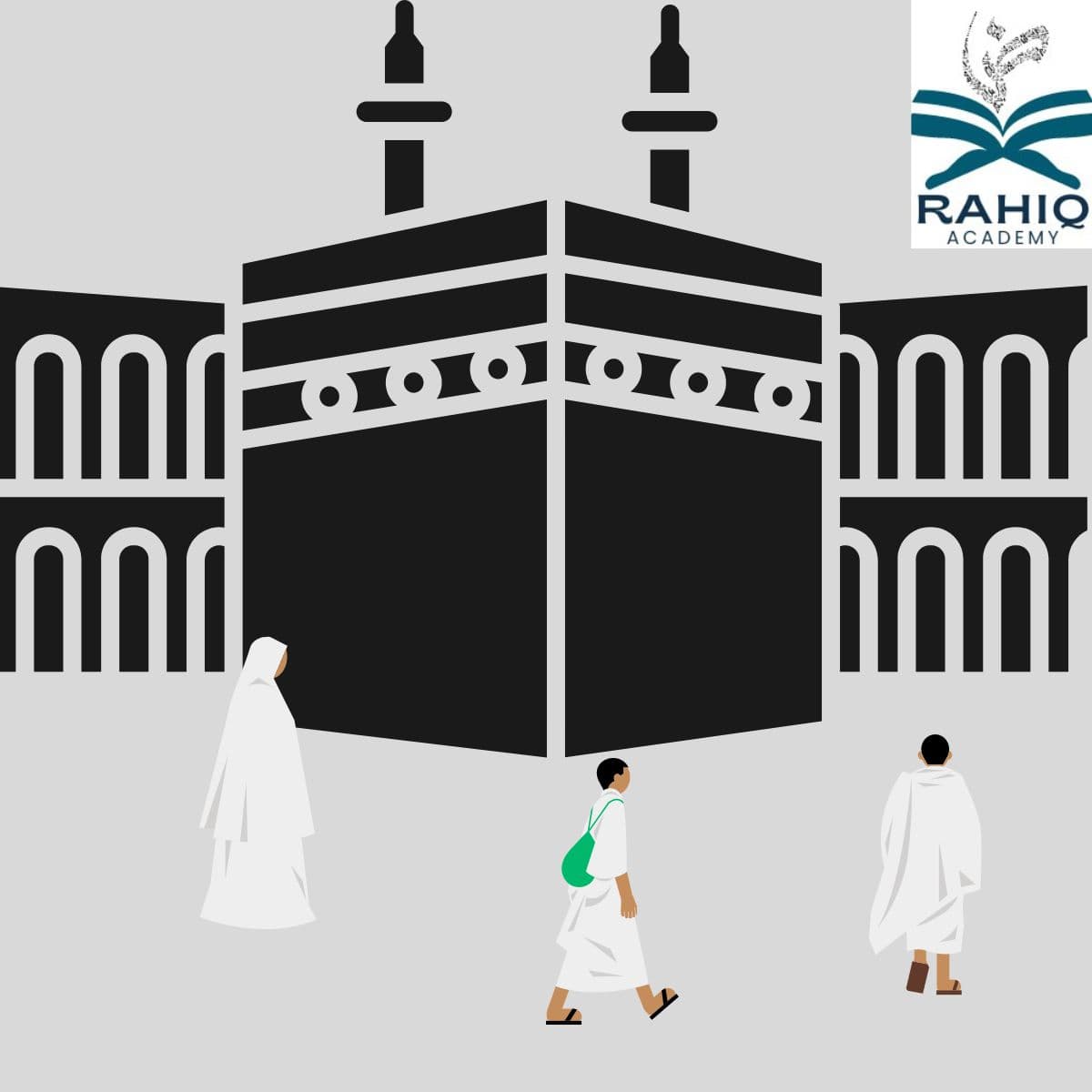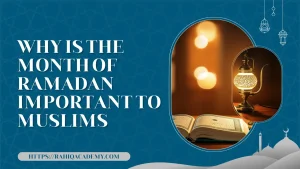The farewell pilgrimage of Prophet Muhammad, known as Hajj al-Wada’, holds immense significance in Islamic history as it marks the last Hajj performed by Prophet Muhammad (PBUH). This pilgrimage, which took place in the 10th year of Hijrah (632 CE), is remembered for the Prophet’s profound Farewell Sermon, which encapsulated the essence of Islamic teachings.
What is Farewell Pilgrimage Meaning ?

Farewell pilgrimage meaning is so named because it was the last pilgrimage performed by Prophet Muhammad (PBUH) before his passing. During this journey, he delivered his final sermon, emphasizing the core principles of Islam, social justice, and moral conduct.
The Farewell Pilgrimage Date
The farewell pilgrimage date took place in the month of Dhu al-Hijjah, the 12th month of the Islamic lunar calendar, in the year 10 AH (632 CE). The Prophet (PBUH) left Madinah on the 25th of Dhu al-Qa’dah and performed the rites of Hajj over several days, culminating in the sermon on the 9th of Dhu al-Hijjah at Mount Arafat.
Complete Farewell Sermon
The Farewell Sermon, delivered by Prophet Muhammad (PBUH) during the Farewell Pilgrimage, is a profound message that has been preserved in both Arabic and English. Below is the complete sermon in both languages, along with the relevant hadith references.
Arabic:
أيها الناس اسمعوا قولي، فإني لا أدري لعلي لا ألقاكم بعد عامي هذا بهذا الموقف أبداً، أيها الناس إن دماءكم وأموالكم عليكم حرام إلى أن تلقوا ربكم كحرمة يومكم هذا، وكحرمة شهركم هذا، وإنكم ستلقون ربكم فيسألكم عن أعمالكم وقد بلغت، فمن كان عنده أمانة فليؤدها إلى من ائتمنه عليها، وإن كل ربا موضوع ولكن لكم رءوس أموالكم لا تظلمون ولا تظلمون. قضى الله أنه لا ربا،
وإن ربا عباس بن عبد المطلب موضوع كله وأن كل دم كان في الجاهلية موضوع وإن أول دمائكم أضع دم ابن ربيعة بن الحارث بن عبد المطلب، وكان مسترضعاً في بني ليث فقتلته هذيل فهو أول ما أبدأ به من دماء الجاهلية.
أما بعد أيها الناس فإن الشيطان قد يئس من أن يعبد بأرضكم هذه أبداً، ولكنه إن يطع فيما سوى ذلك فقد رضي به بما تحقرون من أعمالكم فاحذروه على دينكم أيها الناس إن النسيء زيادة في الكفر يضل به الذين كفروا، يحلونه عاماً ويحرمونه عاماً، ليواطئوا عدة ما حرم الله فيحلوا ما حرم الله ويحرموا ما أحل الله. إن الزمان قد استدار كهيئته يوم خلق الله السموات والأرض وإن عدة الشهور عند الله اثنا عشر شهراً، منها أربعة حرم ثلاثة متوالية ورجب مضر، الذي بين جمادى وشعبان.
أما بعد أيها الناس، فإن لكم على نسائكم حقاً، ولهن عليكم حقاً، لكم عليهن أن لا يوطئن فرشكم أحداً تكرهونه وعليهن أن لا يأتين بفاحشة مبينة فإن فعلن فإن الله قد أذن لكم أن تهجروهن في المضاجع وتضربوهن ضرباً غير مبرح فإن انتهين فلهن رزقهن وكسوتهن بالمعروف واستوصوا بالنساء خيراً،
فإنهن عندكم عوان لا يملكن لأنفسهن شيئاً، وإنكم إنما أخذتموهن بأمانة الله واستحللتم فروجهن بكلمات الله فاعقلوا أيها الناس قولي، فإني قد بلغت، وقد تركت فيكم ما إن اعتصمتم به فلن تضلوا أبداً، أمراً بينا، كتاب الله وسنة نبيه. أيها الناس اسمعوا قولي واعقلوه تعلمن أن كل مسلم أخ للمسلم وأن المسلمين إخوة فلا يحل لامرئ من أخيه إلا ما أعطاه عن طيب نفس منه
فلا تظلموا أنفسكم اللهم هل بلغت؟ فذكر لي أن الناس قالوا: اللهم نعم فقال رسول الله صلى الله عليه وسلم: اللهم اشهد

English:
After praising and thanking Allah, the Prophet began with the words:
“O People! Lend me an attentive ear, for I know not whether after this year I shall ever be amongst you again. Therefore, listen carefully to what I am saying and take these words to those who could not be present here today.
“O People! Just as you regard this month, this day, this city as sacred, so regard the life and property of every Muslim as a sacred trust. Return the goods entrusted to you to their rightful owners. Hurt no one so that no one may hurt you. Remember that you will indeed meet your Lord, and that He will indeed reckon your deeds.
“Allah has forbidden you to take usury (interest), therefore all interest obligations shall henceforth be waived. Your capital is yours to keep. You will neither inflict nor suffer any inequity. Allah has judged that there shall be no interest and that all the interest due to Abbas ibn ‘Abd al-Muttalib (Prophet’s uncle) be waived.
“Every right arising out of homicide in pre-Islamic days is henceforth waived and the first such right that I waive is that arising from the murder of Rabiah ibn al-Harithiah.
“O Men! The unbelievers indulge in tampering with the calendar in order to make permissible that which Allah forbade, and to prohibit which Allah has made permissible. With Allah, the months are twelve in number. Four of them are holy, three of these are successive and one occurs singly between the months of Jumada and Shaban.
“Beware of Satan, for the safety of your religion. He has lost all hope that he will be able to lead you astray in big things, so beware of following him in small things.
“O People! It is true that you have certain rights with regard to your women but they also have rights over you. Remember that you have taken them as your wives only under Allah’s trust and with His permission. If they abide by your right, then to them belongs the right to be fed and clothed in kindness. Do treat your women well and be kind to them for they are your partners and committed helpers. And it is your right that they do not make friends with anyone of whom you do not approve, as well as never to be unchaste.
“O People! Listen to me in earnest, worship Allah, say your five daily prayers, fast during the month of Ramadan, and give your wealth in Zakat (obligatory charity). Perform Hajj if you can afford to.
“All mankind is from Adam and Eve, an Arab has no superiority over a non-Arab nor a non-Arab has any superiority over an Arab; also a white has no superiority over black nor a black has any superiority over white except by piety and good action. Learn that every Muslim is a brother to every Muslim and that the Muslims constitute one brotherhood. Nothing shall be legitimate to a Muslim which belongs to a fellow Muslim unless it was given freely and willingly.
“Do not therefore do injustice to yourselves. Remember one day you will meet Allah and answer your deeds. So beware, do not stray from the path of righteousness after I am gone.
“O People! No Prophet or Apostle will come after me and no new faith will be born. Reason well, therefore, O People! and understand words which I convey to you. I leave behind me two things, the Quran and my Sunnah (i.e., sayings, deeds, and approvals), and if you follow these, you will never go astray.
“All those who listen to me shall pass on my words to others and those to others again; and may the last ones understand my words better than those who listen to me directly.
“Be my witness O Allah, that I have conveyed your message to your people.”
As part of this sermon, the Prophet recited them a revelation from Allah which he had just received and which completed the Quran, for it was the last passage to be revealed:
Arabic:
اليومَ أكملتُ لكم دينَكم وأتممتُ عليكم نعمتي ورضيتُ لكم الإسلامَ دينًا
Translation:
“This day I have perfected for you your religion and completed My favor upon you and have chosen for you Islam as your religion.”
The sermon was repeated sentence by sentence by Safwan’s brother Rabiah (RA), who had a powerful voice, at the request of the Prophet and he faithfully proclaimed to over ten thousand gathered on the occasion. Toward the end of his sermon, the Prophet asked: “O people, have I faithfully delivered unto you my message?” A powerful murmur of assent “O Allah, yes!”, arose from thousands of pilgrims and the vibrant words “Allahumma na’m” rolled like thunder throughout the valley. The Prophet raised his forefinger and said: “Be my witness O Allah, that I have conveyed your message to your people.”
Lessons From The Farewell Pilgrimage

The Farewell Pilgrimage provides several timeless lessons:
- Unity and Brotherhood: The Prophet emphasized that all Muslims are equal and should treat each other as brothers and sisters.
- Justice and Fairness: The prohibition of usury and the emphasis on the sanctity of life and property underscore the importance of justice in Islam.
- Respect for Women: The sermon highlights the importance of treating women with kindness and respect, acknowledging their rights.
- Adherence to the Quran and Sunnah: The Prophet’s reminder to follow the Quran and his teachings ensures that Muslims have a clear guide to righteous living.
Farewell Pilgrimage Summary
The journey began when Prophet Muhammad (PBUH) announced his intention to perform Hajj. He was accompanied by a large number of followers. They traveled from Madinah to Makkah, where they performed the rites of Hajj, including Tawaf (circumambulation of the Ka’bah) and Sa’i (walking between Safa and Marwah).
On the 9th of Dhu al-Hijjah, the Prophet delivered his Farewell Sermon at Mount Arafat. In this sermon, he emphasized the sanctity of life and property, the prohibition of usury, and the importance of treating women with kindness and respect. He also reminded Muslims of their duties to perform the five pillars of Islam and to follow the Quran and Sunnah.
The farewell pilgrimage of prophet Muhammad (PBUH) is a cornerstone of Islamic history, providing valuable guidance for Muslims. The principles outlined in his Farewell Sermon continue to resonate, promoting justice, equality, and moral conduct. By understanding and applying these lessons from the farewell pilgrimage , Muslims can strive to live according to the teachings of Islam.
Want to take your Arabic and Quranic studies to the next level?
Explore our comprehensive Online Courses designed for all skill sets!
Visit our Website to learn more, book Your Free Evaluation and enroll today.




